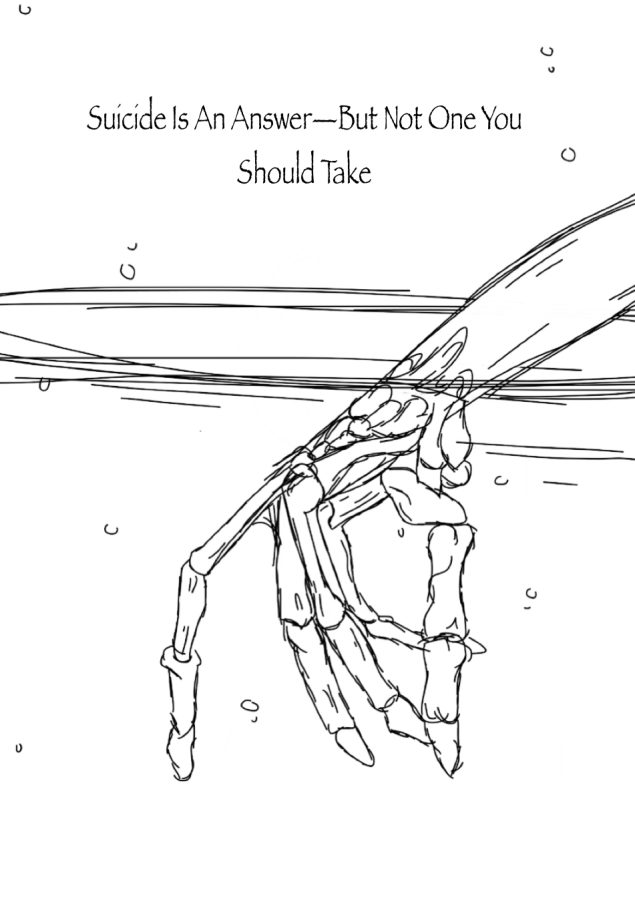Suicide Prevention
Society prefers to repress suicide conversations instead of seeking ways to prevent it. So how do you talk to those in need?
Society prefers to repress suicide conversations instead of seeking ways to prevent it. There is no class to educate you on how to prevent self-harm or death, so how do you go about saying the right thing to a person with these thoughts?
Self-harm is a shocking, depressive, and an unspoken way to end. Nevertheless, there are 12 million people who are seriously considering suicide, according to the CDC.
Being suicidal isn’t something that’s pulled out of thin-air for a person going through depression or excessive anxiety. Because most suicidal people tend to keep their thoughts to themselves, it can be difficult to grasp their motive to take their own life. There are a number of reasons as to why it can trigger someone to do so. Reasons such as: the feeling of isolation or loneliness, loss of a loved one, having a physical illness or health condition, and even being identified in the LGBTQIA+ community without the support of loved ones, as stated by Medical News Today.
Hearing someone talk about ending themselves can put you in a frightening position. It makes you feel as if their lives depend on your choice of wording. But suicidal people are scared too. According to the Children’s Hospital of Philadelphia, “many people with suicidal thoughts do not want to die – they want to end their pain.” Although it is alarming to hear someone say this, it is also crucial to understand the difference between emotional and logical reactions. Someone tells you they want to end it. An emotional reaction would be something along the lines of: “what would I do without you” or “think about your family and friends.” Although you think it’s out of love, it is an incorrect way of handling the situation. Chances are, this person calling you has already been questioning how others will react to their decision.
Instead, avoid dismissing their problems, for example, “If you only knew what I go through” or “That’s not even a big deal.” It shows belittlement and that you view them as selfish. Sharing realistic and practical solutions can show them that you are not only listening, but attempting to improve their situation. Lastly, simply listen with compassion. “People start to heal the moment they feel heard,” said Chery Richardson.
During an interview with an Eastern student, she began to talk about how she felt being a former suicidal. “I slowly felt like everything was failing and betraying me, and the hardest person to see doing that was myself. And those were the time[s] I genuinely didn’t see anything wrong…with my own death…that was a terrifying thing…”
“Helplessness and desperation were the main emotions I felt when trying to convince them to stay, ” another Eastern student began to say. Like most people, the student shares how it felt like their words “were not leaving an impact.” Hearing a suicidal person tell you this can make you feel as if you need to fix someone else’s life. “I’ll never be able to describe the fear you feel when a suicidal friend doesn’t reply back to your messages and the crushing guilt of feeling like you weren’t fighting hard enough to help them.”
If you are a person seeking ways to help a suicidal person, please make sure you understand the difference between caring for them through it rather than fixing them. Fixing someone takes an immense amount of energy and can damage your own self with no promise of a successful outcome. By caring for someone instead, it shows that you’re there for them and it protects yourself as well. Caring for people can be just as simple as checking in on them via text or call when you can. It can also be shown by having patience with any dry response they give back or forgiving their missed call.
Suicide is never something to repress. By talking to others, it can be prevented not only from loved ones, but from society. There is hope, even when your mind tells you there isn’t.







